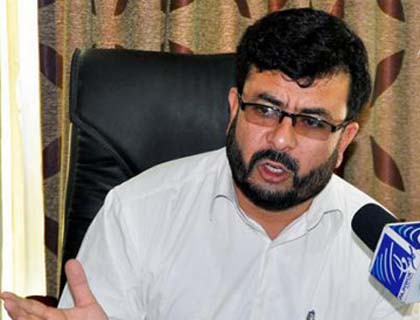KABUL - The Free and Fair Election Foundation of Afghanistan (FEFA) on Monday said the special court for electoral complaints had exceeded its mandate and issued an illegal verdict.
FEFA initially welcomed the special court when it appeared that its members were operating within the legal framework of pursuing electoral fraud and criminal charges. But FEFA Executive Director Jan Dad Spinghar told Pajhwok Afghan News in an exclusive interview that the special court had overreached its legal powers.
"The performances and evaluations which have been done by the special court for electoral complaints were illegal," he said. "As a consequence, the tribunal itself is also illegal."
He maintained that election law only empowered the judiciary to evaluate criminal charges surrounding the election, but that the special court had not done so.
Recounting votes is the legal responsibility of election commissions. The court broke the law by ordering a vote recount, he said.
Members of the special court for electoral fraud announced on June 23 that 62 candidates from 27 provinces had won the September elections based on the vote recount and should replace the MPs currently occupying those seats.
Wolesi Jirga summoned Attorney General Mohammad Eshaq Alako, Supreme Court Chief Justice Abdul Salam Azimi and five other Supreme Court justices, saying they had misused their authority.
The special election court said that the decision was not final and that the disqualified MPs had a month to appeal the decision. The MPs said that they would begin street protests if any of them was stripped of his seat.
The crisis has reached its peak when the three pillars of government—the legislature, the executive, and the judiciary—have lost their credibility among the people and civil society, said Spinghar.
When the judiciary makes a decision about the legislature, it throws off the balance between two forces in a democratic state, and it is an insult to a democracy, he said.
"It was a concerning issue in long term. It is no problem for us, whether the decision was implemented or not, but our basic concern was that a culture of such decisions would develop. People would not trust the election process in the future and we would have no democratic system," he said.
The special court's opinion was not trustworthy, because the special court had faced technical problems while recounting the votes, he said.
"We cooperated with them when the court was formed on the condition that they would only investigate criminal cases related to the election, which could increase people's trust in the election process for the future, but the court did not address those cases and instead recounted the votes," he said.
Haqiqullah Haqiq, the head of the special court, said he did not know under which law FEFA was established.
He said that the court had asked FEFA to participate in the vote recount when Foundation officials told them they had received 900 complaints that had not been investigated by Independent Election Commission (IEC).
Spinghar said that FEFA did not cooperate with the special court out of the view that the vote recount was illegal.
If the court's decision is enforced, it will damage the legitimacy of the Wolesi Jirga, he said. On the other hand, if the decision is not enforced, it will damage the authority of the judiciary, he said.
He said it was the responsibility of the president, the chief executive, to get involved and resolve the dispute.

